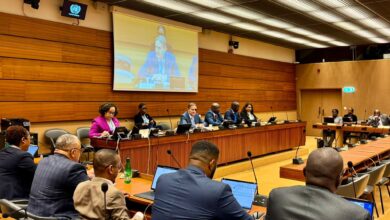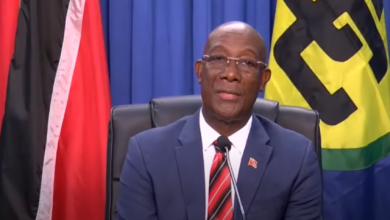WASHINGTON D.C., United States, Wednesday February 11, 2015 – World Bank president Jim Yong Kim says the world is “dangerously unprepared” for future pandemics and lessons need to be learned from the Ebola crisis in West Africa.
Speaking at the inaugural Global Futures Lecture at Georgetown University in Washington, Mr Kim said it was vital that governments, aid agencies, corporations and insurance companies work together to prepare for future outbreaks.
“The Ebola outbreak has been devastating in terms of lives lost and the loss of economic growth,” he said in his lecture “Lessons from Ebola: Toward a post-2015 strategy for pandemic response.”
“We need to make sure that we get to zero cases in this Ebola outbreak. At the same time, we need to prepare for future pandemics that could become far more deadly and infectious than what we have seen so far with Ebola.
“We must learn the lessons from the Ebola outbreak because there is no doubt we will be faced with other pandemics in the years to come.”
According to Mr Kim, the World Bank Group has been working with the World Health Organisation (WHO), other UN agencies, academics, insurance company officials, and others, to work on a concept of developing a financial “pandemic facility.”
He indicated that he expected a proposal for this to be presented to leaders of developed and developing countries in the coming months.
The proposal would probably involve a combination of bonds and insurance plans, but in some ways the facility could be similar to a homeowner’s insurance policy, Mr Kim said.
“This could work like insurance policies that people understand, like fire insurance,” he explained, adding: “The more that you are prepared for a fire, such as having several smoke detectors in your house, the lower the premium you pay.
“The more that countries, multi-lateral institutions, corporations and donors work together to prepare for future pandemics – by building stronger health systems, improved surveillance and chains of supply and transportation, and fast-acting medical response teams – the lower the premium as well,” he continued.
“That would benefit donors and others who would pay the premium, but the greatest benefit would be that market mechanisms would help us to push improvements in our preparedness for epidemics.”
The World Bank chief noted that one possible outcome of a pandemic facility would be a stronger WHO, while disease-control agencies in developing countries could also develop greater capacity.
Informal talks on the subject had been held at the recent World Economic Forum in Davos, Switzerland, he revealed.
There is general acknowledgement among governments and global health agencies that the international response to the Ebola crisis was belated and disorganised.
The WHO recently announced a series of reforms, admitting that it had been too slow to respond to the outbreak in West Africa.
There have been more than 21,700 reported cases of Ebola in the current outbreak, according to the WHO.
About 9,000 people are known to have died, most in Sierra Leone, Guinea and Liberia.






